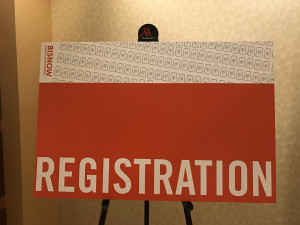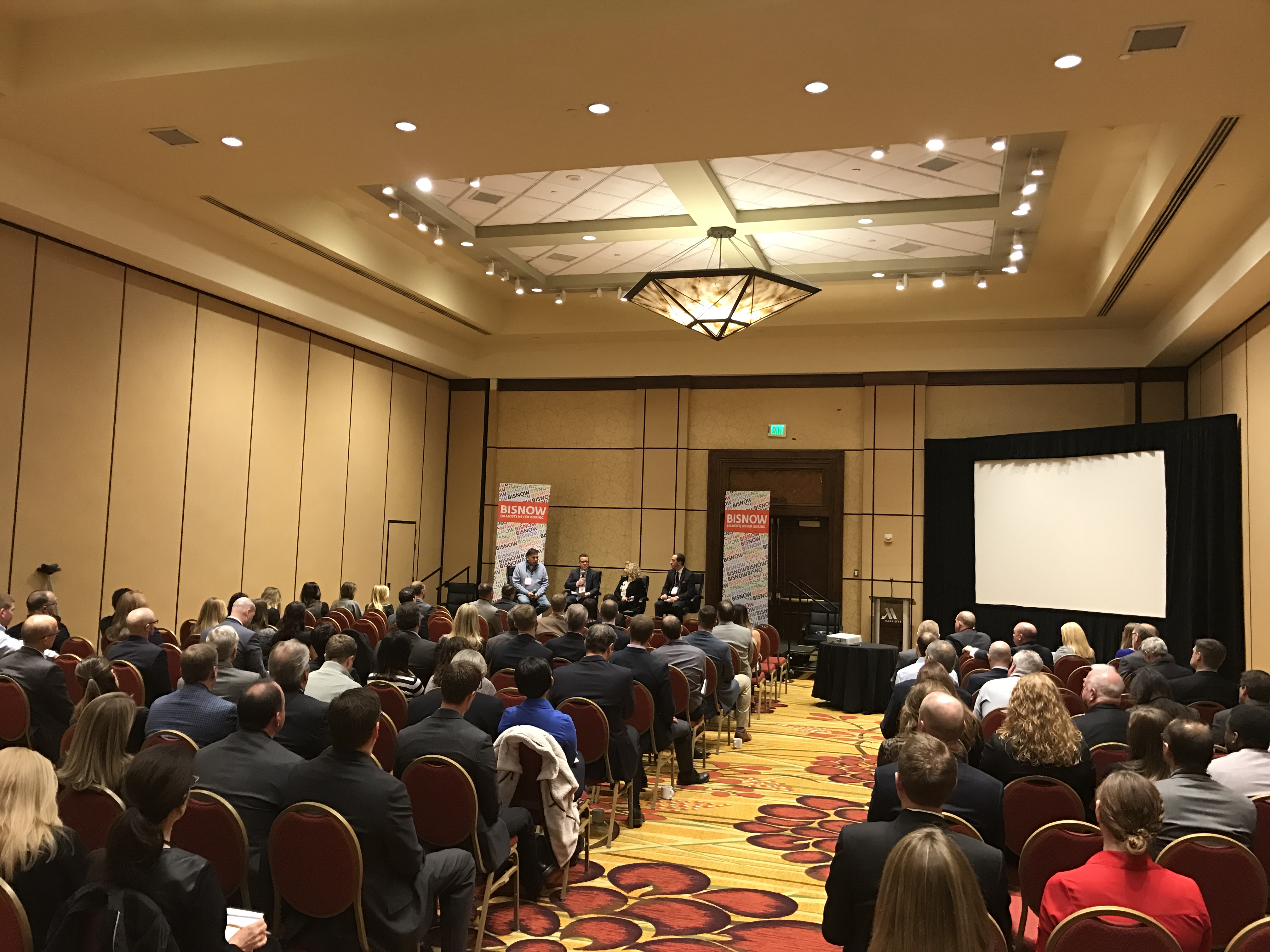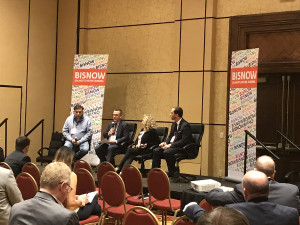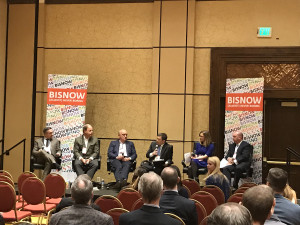By: Julie Wanzer, LEED AP
 Littleton, CO – Bisnow Denver hosted the Third Annual Future of Southeast Suburban event on Wednesday, January 11, 2017 at the Denver Marriott South at Park Meadows with various members of the commercial real estate industry in attendance.
Littleton, CO – Bisnow Denver hosted the Third Annual Future of Southeast Suburban event on Wednesday, January 11, 2017 at the Denver Marriott South at Park Meadows with various members of the commercial real estate industry in attendance.
The first panel entitled, The Southeast Scene: Community & Cultural Developments, The Impact of Transportation, Art & Education on Commercial Real Estate, consisted of:
– Moderator: AJ Nosek, National Client Manager at Partner Engineering and Science
– Panelist: David Genova, CEO at RTD
– Panelist: Cynthia Madden Leitner, CEO at Museum of Outdoor Arts
– Panelist: Vic Ahmed, CEO at Innovation Pavilion
The panel began with comments on the demographics of the Southeast market which David Genova at RTD described as consisting of the Baby Boomers and Millennials as the two biggest demographic groups. While often pitted against each other, Baby Boomers are now following the Millennials in their needs for smaller living spaces and access to amenities and transportation, according to Vic Ahmed at the Innovation Pavilion. Mr. Genova validated this observation by commenting that as RTD builds out transit, they are taking into consideration how these two generations affect future land use and development of more connected and walkable communities.
Challenges & Solutions in Southeast
While discussing the challenges the Southeast market is facing along with possible solutions, Cynthia Madden Leitner at the Musuem of Outdoor Arts, focused on “encouraging a sense of purpose” for the residents in the Southeast. By offering more education programs and hands-on internships which go beyond just making copies and fulfilling coffee orders, she encouraged companies to provide more intensive learning programs to attract and retain talented employees that could provide for sustainable growth in the Southeast.
Vic Ahmed also commented on a means for continued growth in the Southeast area, advocating the need for suburbia to create more “live.work.play” environments to prevent a so-called “urban flight.”
Although sustainable growth in the Southeast is the ultimate goal, David Genova touched on the financial limitations RTD is facing for future growth. He noted that RTD is currently unable to expand their existing equipment and is heavily leveraged and cannot bond on projects until 2023.
The second panel consisted of mainly developers to discuss the New Developments Update
Multifamily, Office, Mixed-Use, Retail: What’s Next for Southeast Suburban. The panelists included:
– Moderator: Brad Cohen, Managing Director at Transwestern
– Panelist: Krystal Arceneaux, Managing Principal at EverWest
– Panelist: William “B.J.” Hybl Jr., President & COO at Griffis/Blessing, Inc.
– Panelist: Don MacKenzie, Managing Director at Forum Real Estate
– Panelist: Kevin Kelley, SVP at United Properties
– Panelist: Jeffrey Brown, Founding Principal at Powers Brown Architecture
When asked about the differences in the urban vs. suburban markets like the Southeast, some panelists offered a different viewpoint than those from the first panel, noting that suburban markets are becoming more desirable. Architect Jeffrey Brown from Powers Brown Architecture, described this as a shift in the market from “Location, location, location to Culture, culture, culture,” where the market becomes less asset driven and more consumer driven.
Krystal Arceneaux at Everwest explained the desirability of the Southeast corridor as having lower rents, access to light rail, and larger blocks of space available.
Future Outlook
Looking towards the future, overall the panelists appeared cautious in their outlooks based on rising labor costs, regulatory issues of construction financing in Colorado, and issues with value-propositioning of certain building types like office and multi-family. Don MacKenzie at Forum Real Estate declared, “The bubble has burst,” but that this economic pause has come at the correct time because the multi-family market is over-saturated. He quoted a stat from Co-Star that there is zero rent growth for multi-family this year.
Kevin Kelley at United Properties added that financing for the office sector is almost non-existent and expects a slow down in Southeast development. Despite these market conditions, Mr. Kelley noted opportunities in the renovation of existing buildings and a greater focus on industrial spaces. He commented, “Industrial is the new retail.”
Jeffrey Brown added, “Design works according to market forces,” and that re-positioning of Class B office space is a current trend. He is seeing that amenities often associated with the hospitality and retail markets are spilling over into office renovations with lobbies being re-positioned with “receptionistas” with coffee bars and other amenities.
Images courtesy of Business Rewritten











